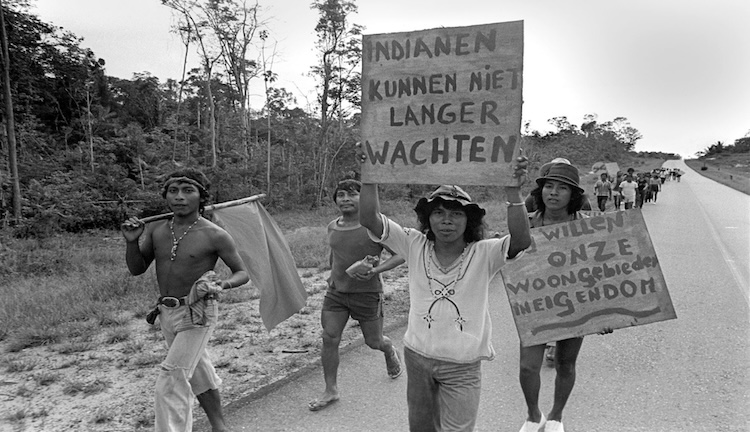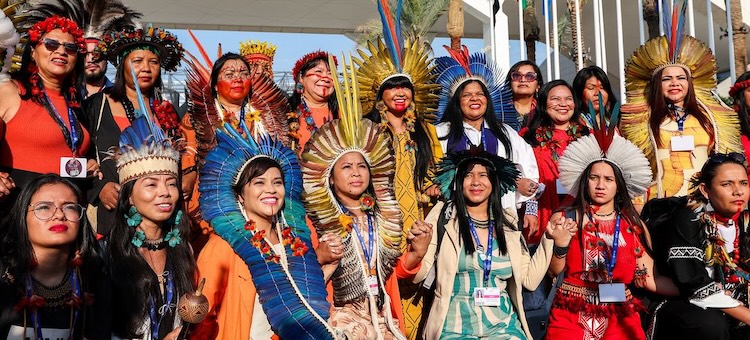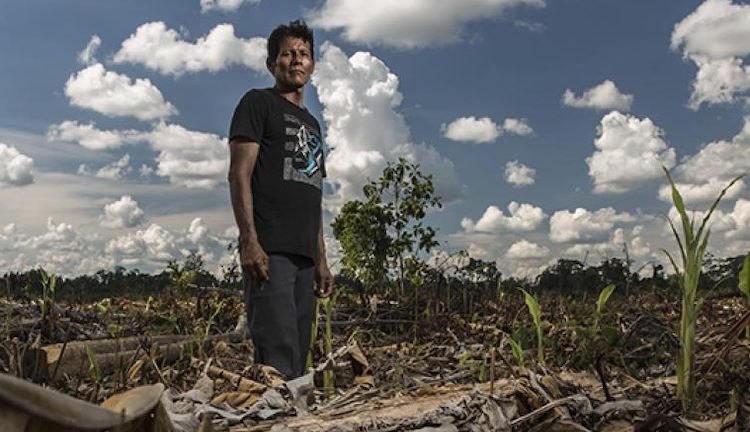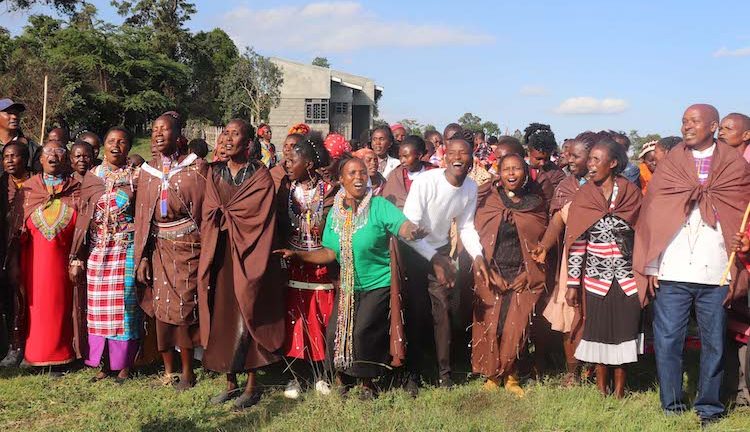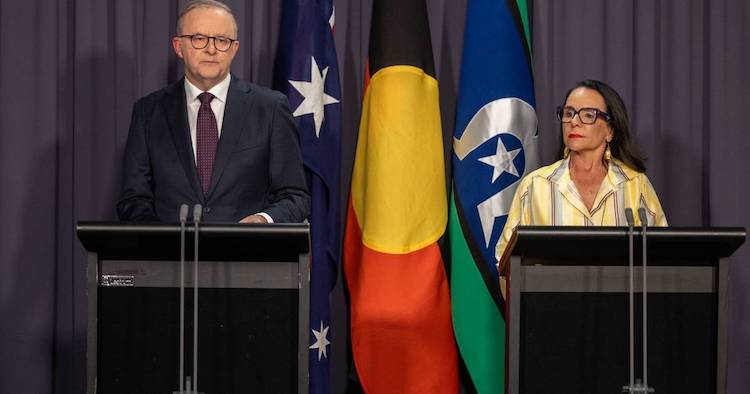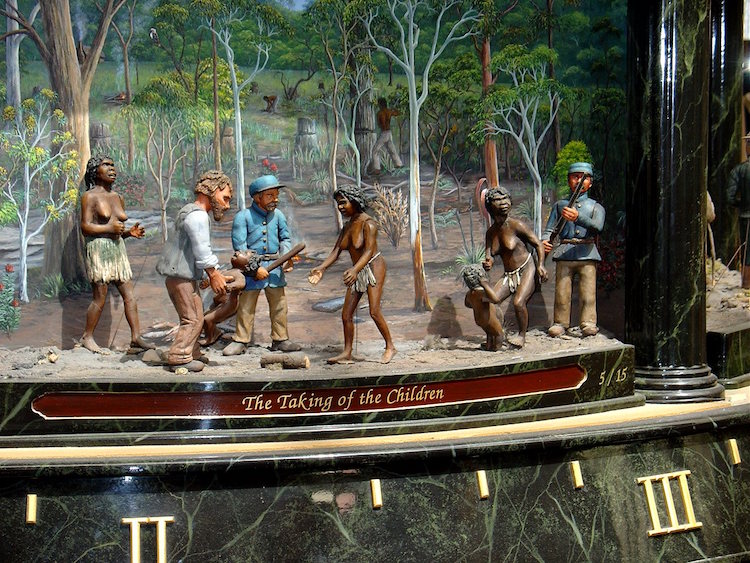By Kizito Makoye NGORONGORO, Tanzania | 8 December 2024 (IDN) — On the rolling plains of Ngorongoro, 74-year-old Maria Shauri knelt among a sea of red, blue, and purple shawls, her arms raised in prayer. “God, hear us,” she muttered, her breath visible in the cold air. Each word escaped her lips in a puff […]
COP16: A Disappointment, as Expected
By Anusa Karki and Simone Galimberti* KATHMANDU, Nepal | 6 November 2024 (IDN) — The recently concluded COP 16 on Biodiversity held in Cali, Colombia, (21 October to 1 November) was largely a disappointment. Unsurprisingly, it was largely expected to end up in this way. Yet, despite the gloom, in Cali, an important new conversation […]
Arctic Indigenous People, Traditional Culture: Potentials for Tourism Development
By Professor Maurice Okoli* MOSCOW | 2 October 2024 (IDN — The Arctic region is a geographic region spreading around the North pole. It is the Northernmost region of the earth characterized by distinctively polar conditions of climate, plant, animal life, Physical features and breathtaking landscapes and unique ecosystems which is home to diverse Indigenous […]
Nepal: Indigenous Peoples and Local Communities Maintain Symbiotic Bonds with Forests
By Devinder Kumar NEW DELHI | 10 August 2024 (IDN) — Nepal is richly endowed with forest resources, with a coverage of about 6.4 million hectares. Between 1992 and 2016, the country nearly doubled its forest cover, moving from 26 percent to 45 percent of its land area. The progress in forest regeneration and improvement […]
Fifty Years On, A Fight for Land Rights in Suriname Continues
By Jason Pinas* This article was issued by Dialogue Earth and is being republished under the Creattive Commons license. PARAMARIBO, Suriname | 7 July 2024 (IDN) — Ever since Suriname’s independence from the Netherlands nearly fifty years ago, the country’s Indigenous and tribal people have been fighting to have their land rights recognised. “We are […]
Landmark Indigenous Rights Declaration Has Yet to be Transformed into Reality
By J Nastranis NEW YORK | 18 April 2024 (IDN) — The designation “Indigenous Peoples” is in itself a challenge, said Bolivian Vice-President David Choquehuanca addressing the UN General Assembly at the UN headquarters, convened to commemorate the tenth anniversary of the World Conference on Indigenous Peoples. The outcome document of the historic meeting, in […]
Renounced by the Vatican Yet the Repressive Force of 15th Century Persists
By William D. Sunderlin, Ph.D., and Robert J. Miller, J.D.* FAYETTEVILLE, New York | PHOENIX, Arizona | 16 April 2024 (IDN) — It seems ridiculous that a repudiated Catholic doctrine dating back to the 15th century should have legal standing anywhere in the world today. Yet the Onondaga, an Indigenous nation located in Central New […]
Indigenous Communities in Kenya Face Eviction by Environmental Profiteers
By Lisa Vives, Global Information Network NEW YORK | 13 November 2023 (IDN) — Kenya’s government is illegally evicting members of the Ogiek community from their ancestral lands in the Mau Forest, to profit from carbon offsetting schemes, human rights lawyers say. Members of the Ogiek community say they’re living in “absolute fear” over the […]
Australia Referendum Exposes Flaws of Democracy Architecture
Analysis by Kalinga Seneviratne SYDNEY | 17 October 2023 (IDN) — The resounding defeat suffered by the Australian Labour Government on the 14 October referendum to amend the constitution to recognize the “First Australians” (indigenous people) exposes the flaws in the Australian democratic architecture, especially the role of social media and concentration of media ownership […]
Revelations of Australia’s Abu Ghraib Force Gov’t to Act
By Kalinga Seneviratne
SYDNEY (IDN) – Screening of secretly filmed shocking footage of abuse of juvenile prisoners in a remote northern Australian prison by the Australian Broadcasting Corporation’s (ABC), renowned investigative reporting program ‘Four Corners’, has outraged thousands of Australians who took to the streets to protest and forced the government to act.
The video material filmed between 2010 and 2014 at the Don Dale youth detention centre in the Northern Territory in Australia and screened on July 25 has drawn comparisons to the treatment of prisoners in the notorious prisons run by the U.S. government in Abu Ghraib in Iraq and Guantanamo Bay naval base in Cuba.





